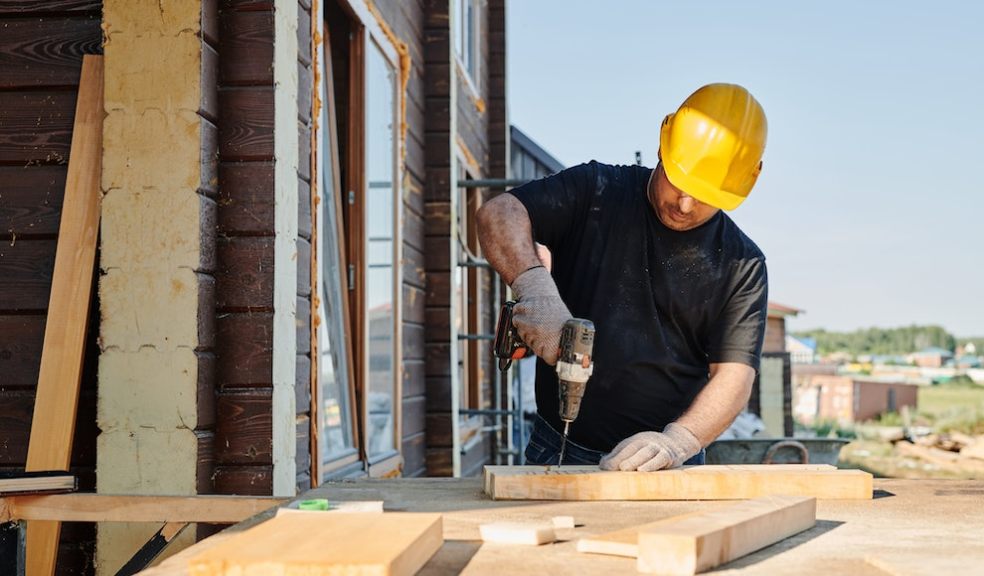
Why you need insurance as a self-employed carpenter
Being one of the skilled jobs in demand, carpenters are paving their way to success in 2023. Yes, it is creative and rewarding. However, these rewards come with some dangers and risks.
Whether it is workers' compensation, liability for a business, or paying for certain work-related accidents as a self-employed carpenter, good insurance is one way to protect yourself and your business.
In this excerpt below, we will be discussing some of the pioneer reasons why insurance shouldn't be a second thought for self-employed carpenters.
What is Carpenter Insurance?
Carpenter insurance is one of the public liability insurance that you must buy. Their primary job is to provide safety to the materials they use in a project that is affected by an sudden incident.
The insurance also safeguards your vehicles and employees from facing financial issues due to a medical claim from an accident. If you confused about the different types of carpenter insurance policy, you will find the right help here.
What Does the Law Say
Carpenters need too have the relevant insurance in place. Along with that, general liability insurance is mandatory if you want to hold a trade license.
Even in order to receive a freelance carpentry license, there are some specific requirements you needs to meet.
Additionally, workers' compensation insurance is compulsory for carpenters with a business of more than one employee.
These laws have been made mandatory for both part-time and full-time carpenters with freelancing posts and businesses.
Protecting A Small Business which Has Just Started
Laws differ in different counties in the UK. Due to costs, many new businesses or freelancing carpenters do not feel obliged to set the insurances up immediately.
Woodworking itself is responsible for more than 40,000 injuries every month. Not to mention accidents caused due to sharp and automatic machinery, drills, saws, and nail guns. Needless to say, carpentry is one such job where accidents are pretty common.
If you have a small carpentry business, and you want to protect yourself from financially regressing legal cases, expensive accident compensation claims and coverage for damage to equipment, then these two are the insurances you can choose from:
- Business Owner’s Policy.
- General Liability.
These are the best insurances to protect yourself from unpredicted interruptions to your business.
Contractual Obligation for Projects
For a freelancing carpenter who is looking for high-end commercial or domestic projects, having insurance will give you an upper hand.
Some commercial ventures make it compulsory for carpenters to have workers' compensation insurance. This is to ensure their prevention from any liability during any accident.
Different Insurances for a Carpenter
Here are the different insurances for carpenters and the benefits associated with them:
1. Commercial Auto
This insurance also covers any vehicles the tradesman use in business.
Any goods the vehicle is covering which get damaged, due to an accident for example, will be covered.
2. Workers' compensation
When you employ people for projects, there is always risk. If an employee is injured while working or even dies from injuries caused though an accident at work, the entire liability will shift completely to the business owner.
You should ensure you have adequate insurance in place to protect your employees and to safeguard you and your business.
3. Classify your Carpentry Business
The more you classify your carpentry business, the lower the insurance premium will be. Take help from the experts and segregate your business. Here's an example:
- Carpentry Contractors: Cabinet building Installations.
- Door, window, and garage door installations.
- Farming.
- Metal ceiling and wall installation.
Such classification can give a proper structure to your business.
4. Mitigating the Risk of Fire
Among the many risks, fire is the most dangerous one. Furniture is generally built with materials which can easily catch fire. Electrical problems can lead to an entire house catching fire, which would mean facing major losses.
It's therefore always better to have adequate insurance cover in place.



















